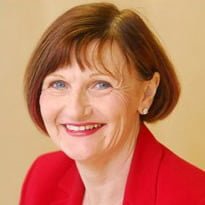No big change for GP IT – Hakin
- 13 September 2012

New GP IT arrangements are likely to see staff that currently provide GP IT support in primary care trusts delivering the same service as part of commissioning support units, Dame Barbara Hakin has said.
The NHS Commissioning Board national director of commissioning development told EHI Primary Care the board has delegated responsibility for funding a significant part of GP IT to clinical commissioning groups.
This involves responsibility for hardware, networks and IT support, while funding for clinical systems will continue to be administered nationally via GP systems of choice.
“It’s a reasonable assumption that they [CCGs] may well use CSUs to discharge the practicalities of that responsibility and many of the staff going into CSUs are currently in the PCTs,” Dame Barbara added.
“All we are talking about is the transfer of functions from one organisation to another. We’re not suggesting a completely new way of doing these things.
“We are assuming the underpinning practices and procedures will be similar, but the responsibility for decision making will rest with GPs,” she said.
“I do agree there’s an urgency to thoroughly understand the funding streams and how they are going to work.”
All 23 CSUs are planning to provide business support services to CCGs, which includes information management and technology.
The commissioning board recently announced the nine ‘at scale’ units that will also supply business intelligence services to the CCGs and other CSUs.
Some are collaborations between CSUs while others are large stand-alone units.
Dame Barbara said the new units are expected to both co-operate and compete with each other, but said this is no different to how organisations act in the commercial world.
“As everybody finds their feet, cooperation between CSUs is going to be as important as preparing for the times when they will inevitably compete with each other,” she said.
“I expect that always to be the case. At the moment there’s probably more collaboration than there’s competition and one would expect that over time the level of competition will increase.”
She explained that the current focus is on stability and the safe transfer of functions from one organisation to another.
This means that for the most part CSUs and CCGs are coming together to identify what works for them and the offerings are broadly following geographical lines.
“Most people recognise that for 2013-14 that’s probably the best way of doing things.
"After 2013-14 we’ll see CCGs becoming much more discerning customers and starting to look around at what CSUs and other providers of support are offering.”
The units may also look at using commercial partners for particular products.
“My view is that currently it’s the NHS which has the resource and experience in terms of people and capacity for commissioning, but the independent sector does have some quite significant products that would be very useful for CSUs and CCGs.”
She acknowledged the risks of transition and the potential for losing the skill and expertise built up in the NHS, but said the people managing the change on the ground have done everything they can to put in place the systems and processes to keep good staff.
Also, she said: “People in the centre have done everything possible to make the process as streamlined as it could be.”
She would not be drawn on how successful that programme has been.
Dame Barbara said the board would continue to assess the new units through the next few ‘checkpoints’ and the outcome of these assessments will determine how “light touch” the hosting arrangements will be.
“It’s essential that the board can be clear which of these organisations it can give a great deal of autonomy to because no one should under estimate the board’s determination to help these organisations be autonomous and on the journey to independence,” she said.
“As they currently stand we know there are some that are more advanced on the journey than others.”




